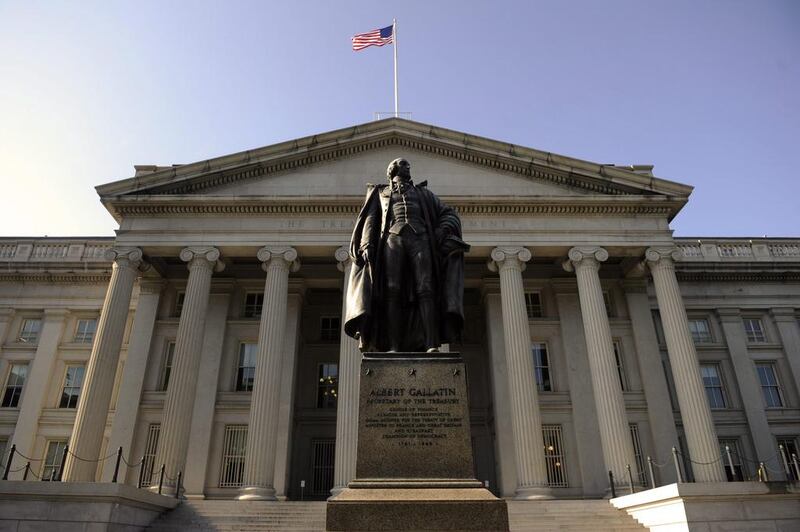The enfeebled state of the US Export and Import Bank (Exim), the country’s export credit agency, is hampering deals in the GCC and must be revived, an official from the US Embassy in the UAE said.
"I'm hearing from the business community here that not having Exim functioning [to provide] loans above $10 million places them at a competitive disadvantage compared to European, Asian, Chinese companies – who are backed by their governments and have import and export banks to support them," Thomas Bruns, regional senior commercial officer for the Arabian Gulf, told The National.
“If you don’t have the bank guarantees and loans available at low interest rates, your costs go up and you can lose out when bidding on projects."
Exim was set up to facilitate export deals between American manufacturers and overseas buyers. Export credit financing is a key instrument for companies operating in multiple sectors, including manufacturing, infrastructure and aerospace.
But its powers have diminished since 2015, as it lacks the requisite number of board members needed to approve transactions over $10m. The senate was expected to appoint three board members this year but is dragging its feet, causing US companies to lose potentially lucrative deals to foreign competitors.
“It’s very hard for US companies to find alternatives because that’s why the agency exists – through the Treasury you get access to lower interest loans or mechanisms that can guarantee loans to make you more competitive – so this continues to be an issue,” Mr Bruns said.
Small-to-medium-sized firms – which the US Embassy in the UAE is mandated to help bring to the market but require the most financial support – are bearing the brunt of the stalemate, he added. “We hope our leaders will work it out,” he said.
Besides Exim, other concerns among US companies in the UAE include payment delays, the future of VAT, and intellectual property rights, as the UAE seeks to foster technological innovation between both local and overseas firms.
_____________
Read more:
[ UAE Economy Minister and US Commerce Secretary discuss boosting trade relations ]
[ Boeing says Exim Bank vital for the US amid competition from China ]
[ Gulftainer subsidiary wins 50-year US port concession ]
_____________
Proposals to allow foreigners to own 100 per cent of a business, up from 49 per cent now, are a significant opportunity for US businesses, he added. “The [Donald Trump] administration has placed a particular emphasis on the Gulf and the geopolitical and commercial relationship is strong," he said.
He was speaking at an American Chamber event in Abu Dhabi.
US-UAE economic ties are strengthening, despite existing challenges, according to officials at the event.
Abdulla Al Saleh, undersecretary of foreign trade and industry at the UAE Ministry of Economy, told delegates the two countries “enjoy a solid trade and investment relationship”.
The US is the UAE’s third largest trading partner accounting for $24.4bn of trade in 2017, he said.
Meanwhile, AmCham’s 1,000 UAE membership base has remained steady in the past 2-3 years despite regional economic slowdown and low oil prices, said AmCham chairman Sharief Fahmy. There is particular appetite among healthcare, education, energy and technology firms to enter the UAE, he added.






